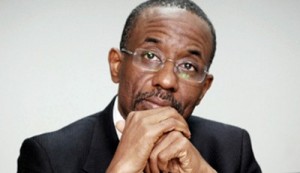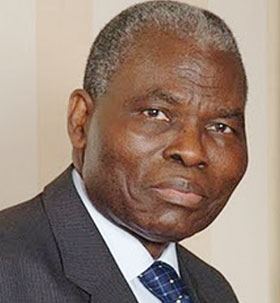Sanusi Faces Lawmakers Seeking to Curb CBN’s Power
Central bank Governor Lamido Sanusi will today face lawmakers who are seeking to curtail his powers after he criticized them for overspending and doubled interest rates.
Sanusi, 51, is scheduled to appear at a public hearing in Parliament in the capital, Abuja, where lawmakers are debating an amendment to the Central Bank of Nigeria Act that would strip Sanusi of his position as chairman of the bank’s board. The bill also proposes that Parliament approves the bank’s budget and the board includes more external members.
As central bank governor of Africa’s largest oil producer, Sanusi has won plaudits from investors for cleaning up the banking industry and rescuing it from near-collapse in 2009. At the same time he’s drawn criticism from lawmakers, opposed to his push for spending curbs on salaries and for being too powerful within the bank.
Sanusi “has been very decisive, and probably very aggressive in the use of his powers, in terms of making changes,” Bismarck Rewane, chief executive officer of Lagos- based Financial Derivatives Co. and a council member of the Nigerian Stock Exchange, said by phone Oct. 18. “Nigeria is not used to that kind of aggressive and very rapid change.”
Two months after he took office in 2009, Sanusi fired the chief executives of eight lenders after an audit found evidence of mismanagement and reckless lending. In December 2010, lawmakers demanded Sanusi apologize for saying their salaries, accounting for a quarter of the government’s recurrent spending, was damaging for the economy. He maintained that his estimates were correct.
‘Stronger Institutions’
The proposed changes to the legislation are aimed at “having stronger institutions and not a stronger personality or officials,” Victor Ogene, deputy chairman of the House of Representatives Media Committee, said in a phone interview from Abuja on Oct. 19. The current law gives too much power to the governor and the budget is run without scrutiny, he said.
The National Assembly comprises 109 seats in the Senate and 360 seats in the House of Representatives, with the ruling People’s Democratic Party, led by President Goodluck Jonathan, controlling a majority. Jonathan pledged on Oct. 10 to rein in recurrent spending, which includes salaries, to 69 percent of the total budget of 4.92 trillion naira ($31 billion) in 2013, from 72 percent this year.
‘Political Elite’
“There’s been a push from the National Assembly, from the states, from large segments of the political elite to increase spending, to sustain a very expansionary fiscal stance in recent years,”Samir Gadio, an emerging-markets strategist at Standard Bank Group Ltd., said in a phone interview from Lagos. “The most vocal critic of this stance has been the central bank and Governor Sanusi.”
If the proposed amendments to the Central Bank Act are passed, it will undermine the bank’s independence and send a “very bad signal, not only to international investors, but also domestically,” he said.
Sanusi led the Monetary Policy Committee in increasing the benchmark interest rate by six percentage points to a record 12 percent in the past two years to bolster the currency and curb inflation. That’s boosted the government’s borrowing costs, reducing funds available for other programs, Gadio said.
The naira has weakened 2.5 percent against the dollar in the past two years and was trading at 157.35 late on Oct. 19. The Bloomberg NSE Banking Index (NGSEB10) of the top 10 lenders has gained 15 percent in the same period.
Currency Plan
Sanusi has already come under fire from lawmakers this year for his proposal to introduce a 5,000 naira note and coins for some lower-denomination notes. Parliament opposed the plan, saying it would cause hyper-inflation, reduce purchasing power, prompt a currency devaluation and a “widening gap between the rich and poor,” according to a Sept. 18 document. Jonathan on Sept. 20 ordered the central bank to halt the program.
Parliament is unlikely to approve the amendments to the law, Ugochukwu Okoroafor, a spokesman for the central bank, said in a phone interview from Abuja on Oct. 19. The bank said on May 3 its budget is audited annually by international accounting firms.
“We believe there’s overwhelming support for the retention of the CBN autonomy and that’s consistent with international best practice,” he said.
Source: Bloomberg









